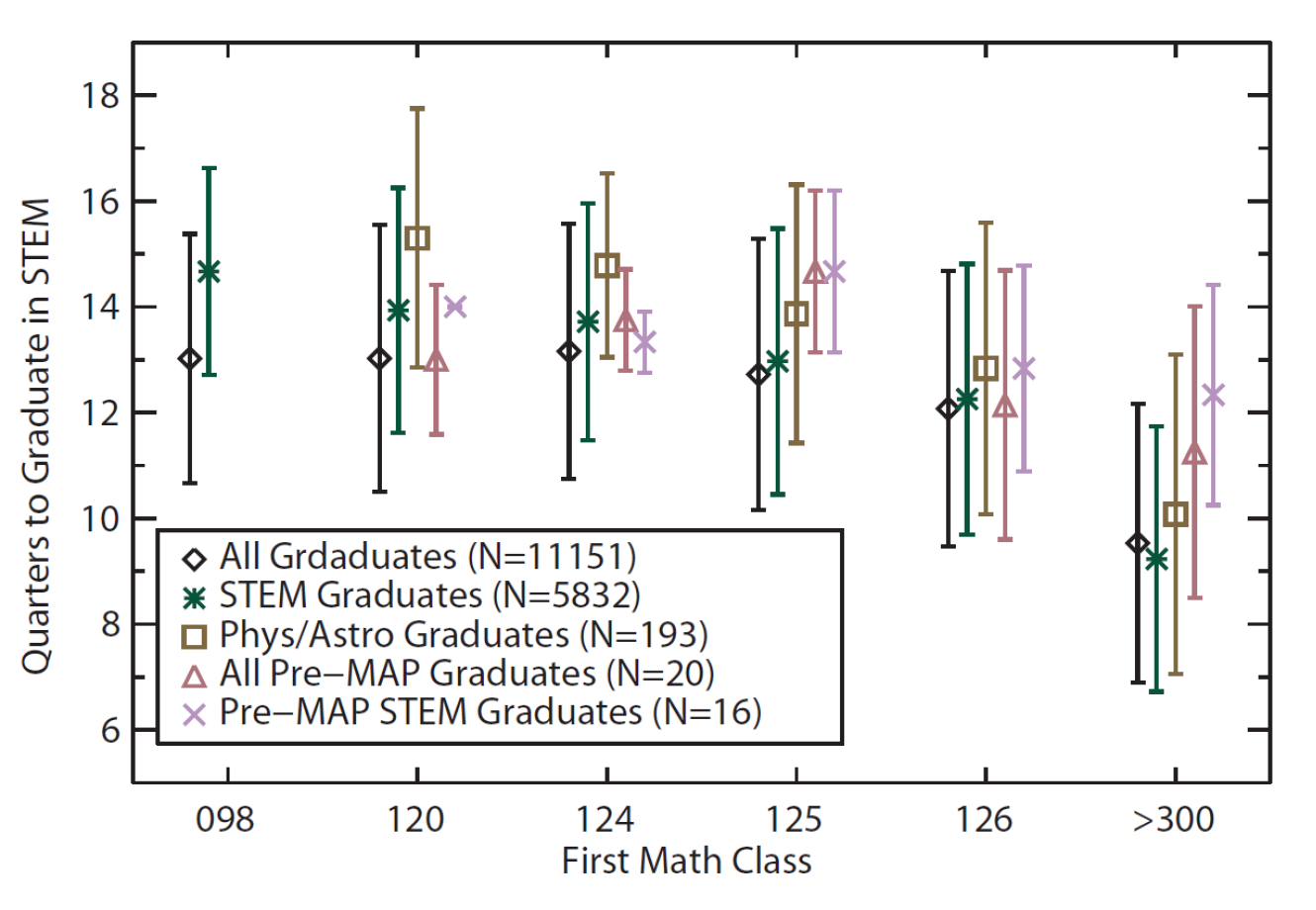Pre-MAP
UW's undergraduate research program
As a graduate student at the University of Washington (2006-2012), I worked as part of the Pre-Major in Astronomy Program (Pre-MAP) staff. The goal of Pre-MAP is to increase the number of under-represented and marginalized students who choose to major in astronomy or other STEM fields. The core of Pre-MAP is a course aimed at first-year and transfer students that teaches them research skills then pairs them with mentors to complete a small research project. Pre-MAP also includes cohort building through events and field trips and continued mentoring and support through the remainder of the student’s undergraduate experience.
I served as the instructor for the research course in 2009, and as part of that experience developed curriculum to teach basic coding and research skills. I also served as academic mentor to the next cohort of students, organized field trips, and participated in writing grants to support the program.
In 2013, I worked with a team to perform a quantitative evaluation of Pre-MAP, focused on the academic performance of the students who had participated in the program. We had already performed a qualitative evaluation, finding that students typically had a positive experience with the program and believed it to be helpful. In our evaluation, we focused on the GPA and graduation outcomes of our students compared to those of students who did not participate in the program.
We found that student outcomes depended strongly on their initial math class. Students who come to UW take a math placement test as part of their orientation. As with any placement test, the outcome tracks with the quality of high school education, which itself depends strongly on economic and racial factors.


When comparing student GPA and quarters to graduate within groups of students who started in the same math class, and found little difference between students who had enrolled in Pre-MAP and those who hadn’t, with the exception of slightly longer graduation times for students who started at advanced levels of math.
The qualitative evaluation taught us that to make a difference in the graduation outcomes of students, we needed to provide and/or assist students in finding more academic mentoring and resources instead of focusing only on research. As we examined these results, we instituted an official academic mentor as part of our program.